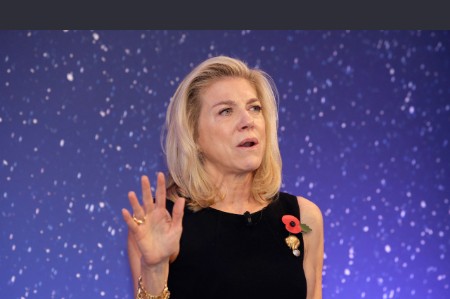“To a lot of people, inclusive capitalism is an oxymoron,” said Lady de Rothschild. “That’s because capitalism has failed so many people. And we should remember that, to Adam Smith [the 18th-century author who laid the foundations of free market economic theory], it would have been a redundancy. Clearly, we have a problem where so many people across the western world and beyond feel that the benefits of capitalism exclude them.”
Sustainable approach
Lady de Rothschild’s leadership of the Coalition has seen it become one of the principal drivers behind the recently announced Embankment Project for Inclusive Capitalism, which aims to bring together investors and others to “transform the way businesses measure and report on the value they create for stakeholders.”
She argued that, unless the economic system creates opportunities for prosperity for more people in the future, the widespread distrust of institutions and frustration at growing inequality will continue. She also counseled against presenting investors with a choice between “inclusive” or “profitable” companies.
“Shareholders do better with companies that take a long-term, sustainable approach,” she said. “An Oxford study showed that 80% of companies that pursued a longer-term approach had a lower cost of capital, better operating performance and better earnings per share than their competitors.”
Lady de Rothschild was joined by Hywel Ball, Assurance Managing Partner for EY UK and Ireland and Head of UK Audit at EY, who is the organization’s representative on the Embankment Project.
He said: “When it comes to long-term value, I think companies are struggling to get a clear definition of what they’re trying to do and how they should do it. We want to help companies better understand and frame their long-term purpose and strategies. Ultimately, we are trying to help business restore the social contract that has come under so much pressure since the financial crisis.”
Lady de Rothschild insisted that creating long-term value shouldn’t be viewed as an optional extra. “This isn’t about corporate social responsibility or impact investing, or environmental, social and governance funds,” she said. “It’s about investing and spending our money in that part of the ecosystem that is helping workers and shareholders and the environment.
“This is a virtuous circle,” she continued. “If the companies that are doing the right thing by their employees, their suppliers and so on become the most valuable companies, they won’t need to worry about being targeted by hostile takeovers, or by investors or regulators.
“So we’re on a mission to change the way capitalism works. Because capitalism is not too big to fail.”
The future is already here
The plenary sessions featured further insight from Gary Kabureck, a Board Member of the International Accounting Standards Board; Simon Fraser, Chairman of The Investor Forum; Sir Peter Westmacott, former UK Ambassador to the US and EY Non-Executive Director; Eamonn McGrath, UK Head of Regulatory and Public Policy, EY; and journalists Nick Robinson and Gillian Tett.
The general theme of disruption was a common one in the breakout sessions. From outlining the growing and evolving cyber threat to discussing the ways in which technology will change the finance function’s role in the future, delegates heard from those working at the leading edge.
Once again, adapting to the pace of change was a key topic. As Mike Cowan, Head of Finance 4.0 at EY UK and Ireland, pointed out as part of a session on that theme, the future is already here; big data, analytics and robotics are transforming the finance function. “In the next few years, we will find that power will migrate to those who control data and are able to extract value from it,” he said.
Cowan’s session focused on how new technology – including robotics, artificial intelligence and predictive analytics – will liberate finance teams from technical tasks and allow for more time to deliver insight and strategic direction to the business.
“For CFOs, there are great opportunities ahead,” he said, summing up much of the day’s message: while change is disruptive and challenging, savvy leaders are already on board and are using new techniques and approaches to help their businesses thrive.


